Culture & Trends
Nation With Lowest Birthrate Is Rocked by Soaring Sales of Dog Strollers
Pooches in prams outpace actual baby carriages in South Korea, leaving officials barking mad
By The Wall Street Journal Sep 11, 2024 (Gmt+09:00)
4
Min read
Most Read
LG Chem to sell water filter business to Glenwood PE for $692 million


KT&G eyes overseas M&A after rejecting activist fund's offer


Kyobo Life poised to buy Japan’s SBI Group-owned savings bank


StockX in merger talks with Naver’s online reseller Kream


Meritz backs half of ex-manager’s $210 mn hedge fund


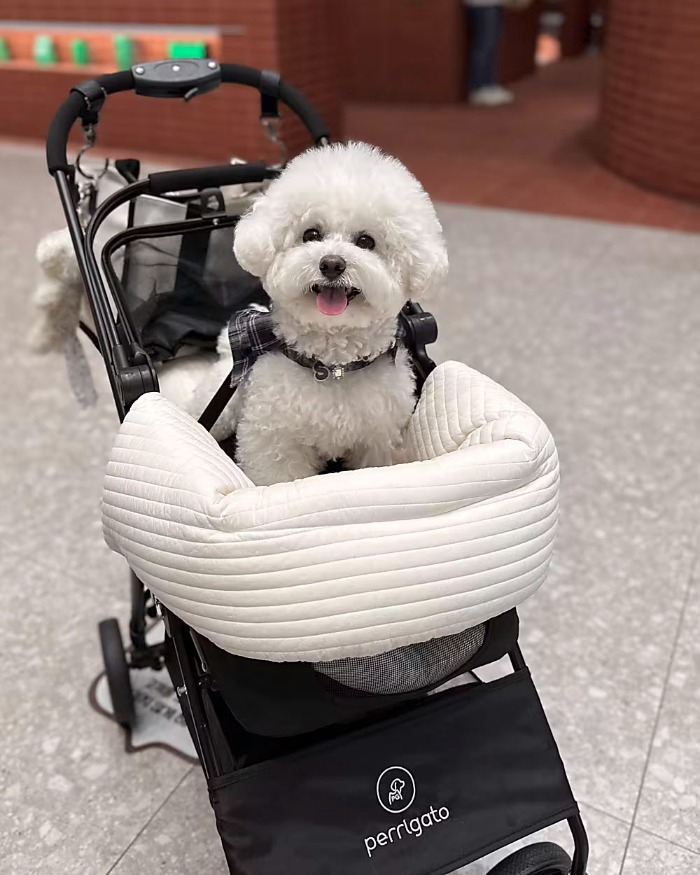
“I’m not even married yet,” Kang, 24, responded.
The startled woman stared into the stroller and took in the little passenger: a brown poodle named Coco. She left, imploring Kang to start a family. “I don’t want to get married,” Kang says. “I’d rather spend money on my dog.”
A global discourse has emerged, including in the U.S., about childlessness and the reluctance to bear offspring. But the hand-wringing might be at its fiercest in South Korea, home to the wealthy world’s lowest birthrate, as well as another distinction that has fur flying: the skyrocketing sales of dog strollers, which last year outpaced those of baby strollers for the first time, according to Gmarket, one of South Korea’s largest online retailers. The trend held true for the first six months of this year, too.
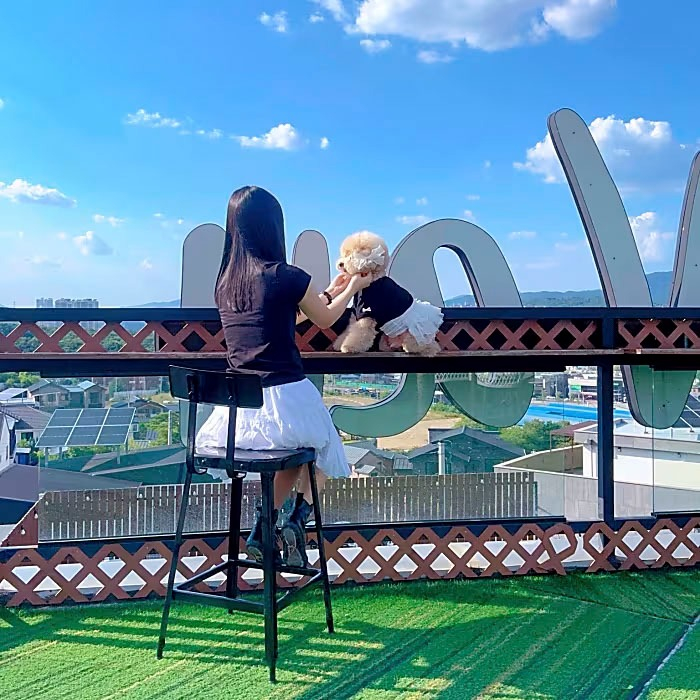
In many advanced economies, including the U.S., adults treat their pets like pampered children, with fancy birthday parties, decked-out doggy mansions, private-plane travel and rides in dog strollers.
But pet parents have South Korean officials howling.
‘Demographic national emergency’
The country is confronting a national fertility rate of 0.72—or a mere third of the level needed to maintain the population. At a youth roundtable last year, Kim Moon-soo, the country’s now labor minister, scolded the fresh-faced attendees: “What I worry about is young people not loving each other,” Kim said. “Instead, they love their dogs and carry them around, they don’t get married, and they don’t have children.”
Members of a left-leaning minority party protested Kim’s comments at a recent press conference, and said he should consider intense working conditions and low wages before blaming pet owners for low birthrates.
In a recent local poll, one in two South Korean women aged 20 to 49 said they had no intention of having children, seeing it as inessential and citing financial constraints. While pet-friendly venues proliferate across the country, restaurants and cafes declare “No-kid zones,” pointing to disruptive behavior.
The central government’s entreaty for younger generations to choose children over pets does have a twist: South Korean President Yoon Suk Yeol is married without children—and has a menagerie of at least 10 dogs and cats himself.
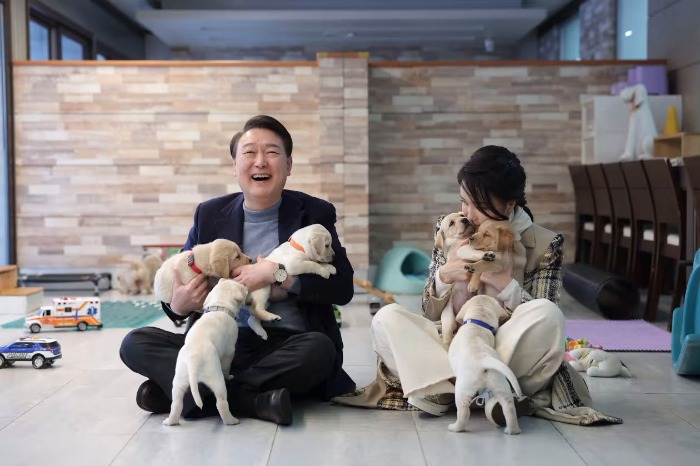
Still, in June, Yoon declared a “demographic national emergency” over South Korea’s low birthrate. He called on government ministries to resolve the plummeting birthrates to avoid an “existential crisis.”
Kim Bora, a 32-year-old freelance web designer, isn’t contemplating having kids yet. She finds South Korea too hypercompetitive and costly for child rearing. Instead, she has tricked out her dog stroller, which can also transform into a carseat, for her bichon frise, Salgu, the Korean word for apricot. Salgu luxuriates in her stroller with a heat pack in the winter and an ice pack in the summer.
“If I had a kid,” Kim notes, “I wouldn’t be able to take care of Salgu as much as I do now.”
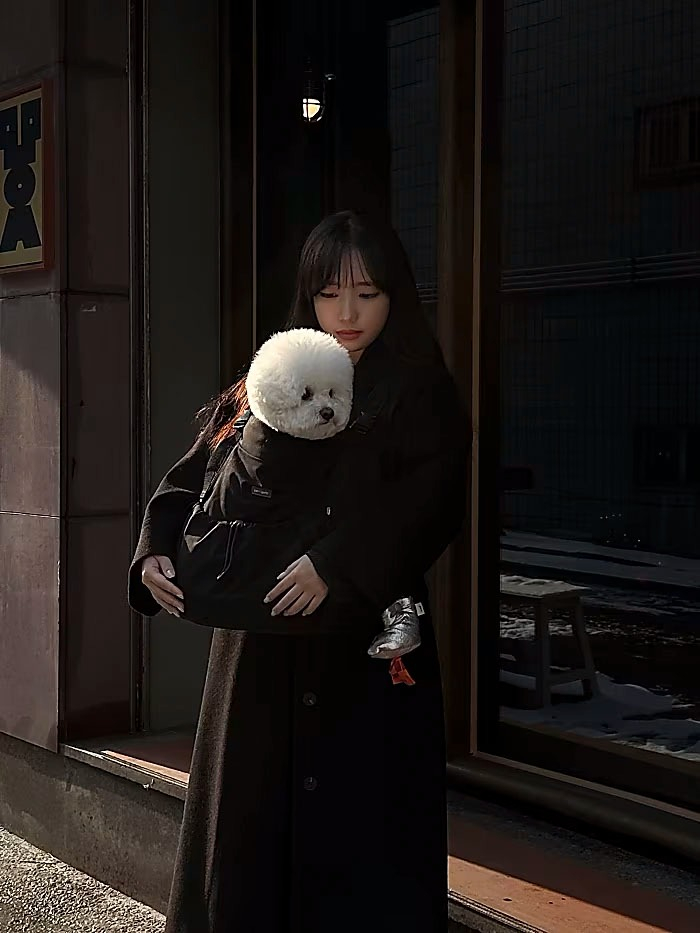
Dog-stroller sales have quadrupled since 2019, according to Yoon Hyun-shin, head of Pet Friends, South Korea’s largest online pet-commerce platform. Airbuggy is hailed as the “Mercedes-Benz” of them. Their fall-winter “Grey Tweed” special-edition model costs about $1,100, sports Scottish fabric and off-road tires.
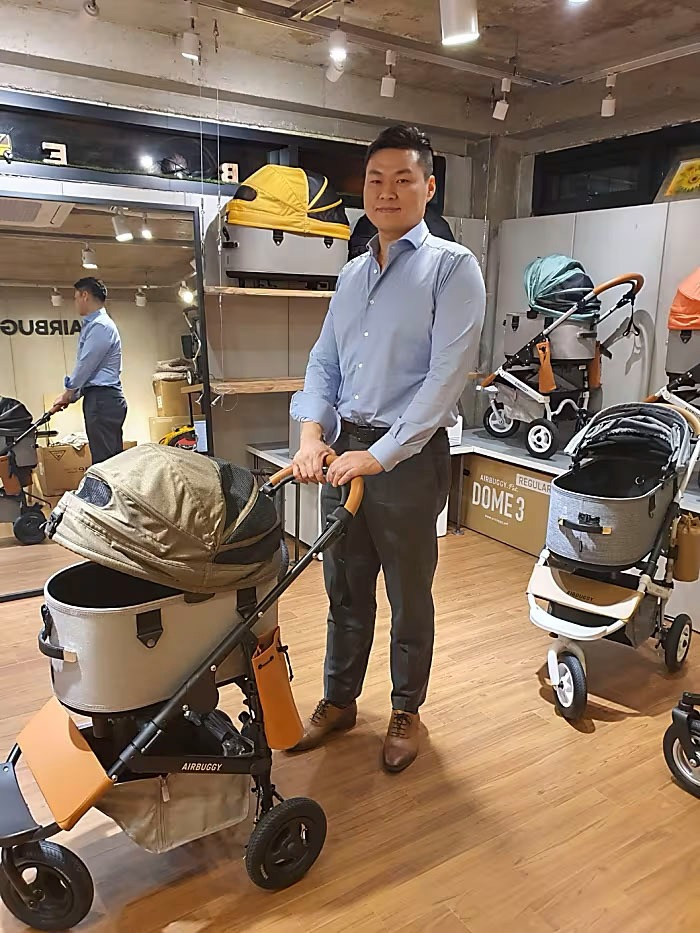
Strollers ferrying generally small, healthy dogs are part of the daily landscape, across South Korean department stores, restaurants, sidewalks and recreation areas.
They clog the footpaths at Seoul Forest Park—which is larger than New York’s Central Park—befuddling Lee Sung-kyu, 62, a facilities manager there. “Those strollers should be carrying babies,” he said.
So Lee at first felt a certain dismay when his own adult daughter splurged for a dog stroller that cost roughly $225.
“But the dog won’t ride it,” said Lee, cracking a grin. “The dog keeps jumping out.”
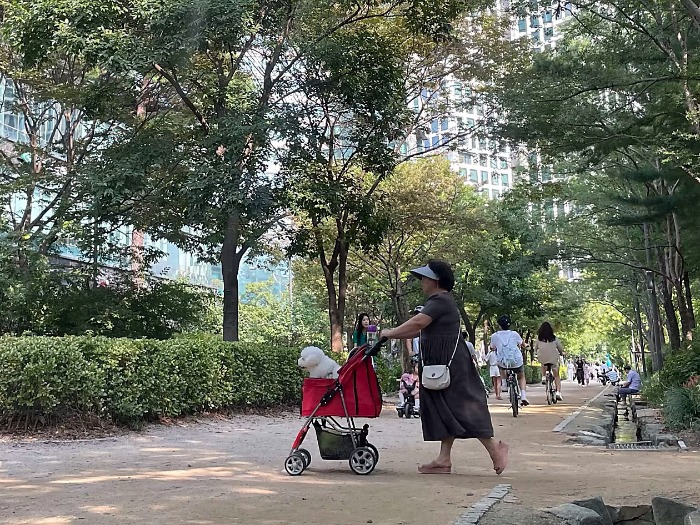
Write to Dasl Yoon at dasl.yoon@wsj.com
More to Read
-

-
 EconomyS.Korea’s fertility rate hits new world-record low in 2023
EconomyS.Korea’s fertility rate hits new world-record low in 2023Feb 28, 2024 (Gmt+09:00)
4 Min read -

Comment 0
LOG IN


